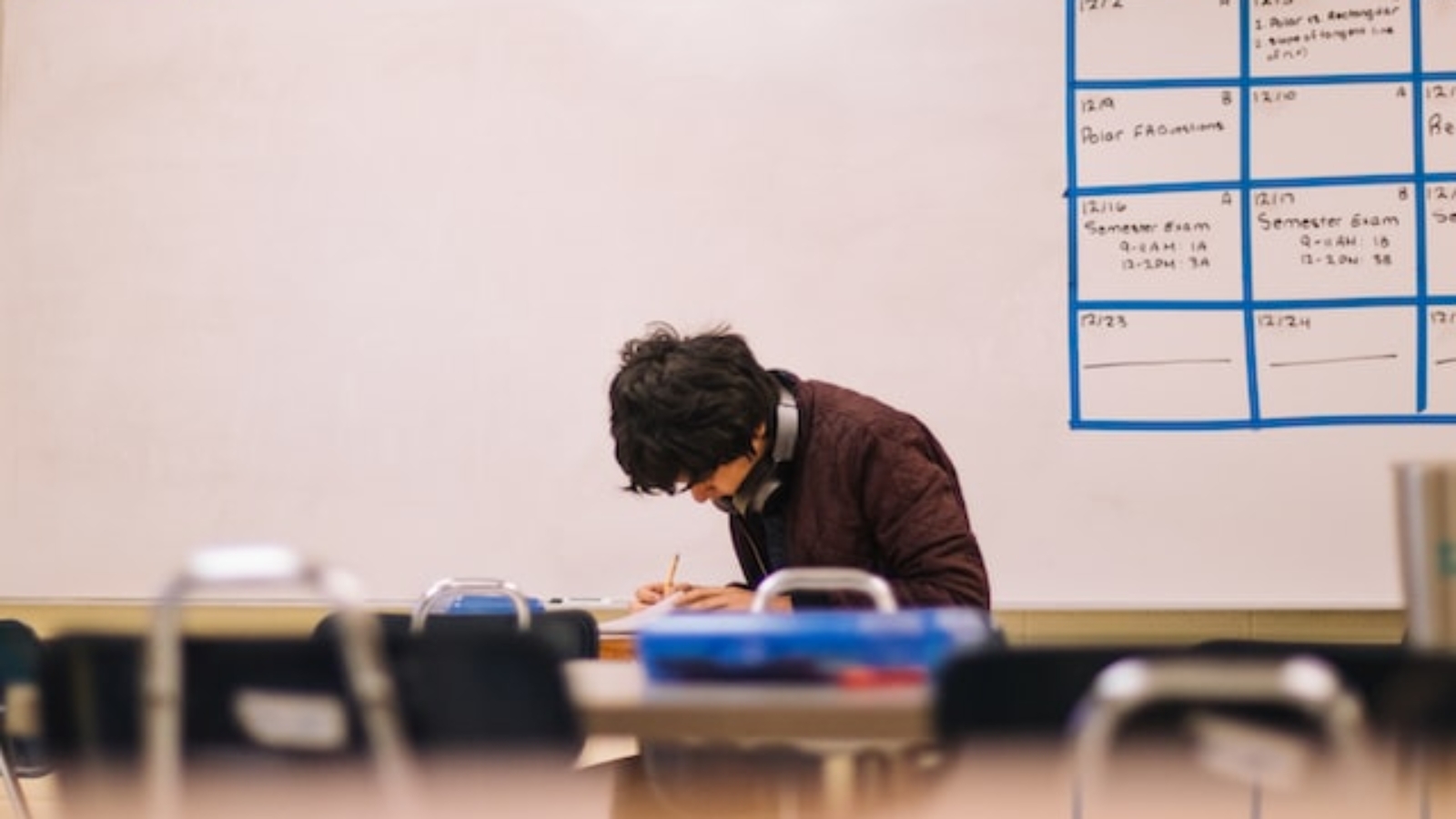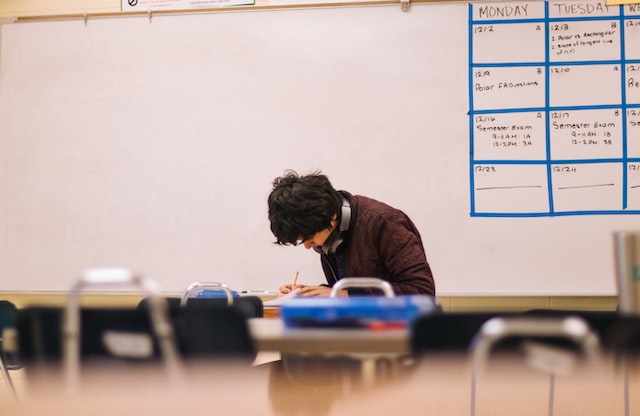Let’s start with the availability of time for studying. One way of categorizing the approach to examination can be based on the days or the time a student to plan and study for the examination like:
Announcement of examination
Two weeks before examination
One week before examination
Day before examination
Day of examination
The students have to prepare themselves for each of these stages even if they haven’t been serious for the last (lost) year or months!
The three culprits that damage our prospects: Beware of them!
Fear, anxiety and worry are often associated with examination. Anxiety and concern are normal during examinations as far as they are under your control! Beyond that limit you are giving them a chance to affect your performance. The control is with you!
Keep the mind clear and focused. If we have to learn, think and write an answer in an examination, it’s all the more necessary to stay calm.
The cloudiness of “Fear, Anxiety and Worry” often blocks this clarity. Lack of clarity unnecessarily affects the schedule of study. Instead of planning, revising and studying during examination time, we spend time on thinking about how to worry and fear – our time is then spent on discouraging and unpleasant experiences and thoughts.
When we start with an examination season – keep these away – fear, anxiety, worry – that itself will make your thoughts clear – and you will focus on “subject & study” rather than “stress & fear”.
This builds the Confidence in you, which is vital to take control of this situation.
Be the master of the situation! Not a slave to it!
One month to a week before Examinations
Sort out or plan assignments, projects and record/manual works during this time, so that they don’t hinder your focus during preparations for examination. If pending ones are there, plan it so that you can do it in intervals without affecting much your study time for examinations.
Manage the following well while you near examinations:
Mobile Phone : use it bare minimum only to your advantage. Stay connected only to those who can appreciate and motivate you. Use it for clarifications and doubt clearing. Don’t cling onto for hours. Try not to involve yourself in worrisome or annoying issues. Don’t get carried away into unwanted thoughts. Exam is the season only for learning…like it or not!
Food : Health is primary to deal all the three culprits- fear anxiety and worry. This is important especially if you are staying in a Hostel and studying. See that adequate quality food is taken as you don’t want to run into health problems during the month before your exams. There is a tendency of students to eat less, or at odd times nearing/during examinations. Take care that you eat healthy and right.
Friends: They are always good. During examinations decide on how much you want of them, in the interests of all of you, including them. Help them but not at the cost of your studies.
Sleep/rest: Take breaks through sleep or rest; even changing subjects can be a relaxing break. Lack of rest or sleep can be tiresome.
Take care of these wisely, because they can stop you from having quality time with your first love of the examination season – the study material.
Examination is a test. We may understand a concept very well – say in Anatomy, Pathology, Medicine or Gynecology, engineering or social studies. You need to prove that you know the concept by writing a correct answer to the question asked in the examination hall.
Understanding a concept in a classroom is fine, and the starting of learning. But modifying this understanding, to be able write the correct answer which suits the question in the examination and helps us get marks is a different capacity.
This capacity of preparing for examinations varies with students. Each student has her/ his own pattern of studying. This pattern of studying also varies with the “subject”.
Find your category and then identify your learning pattern for examination.
- Some students need to take time and read slowly and repeatedly to study – that means they need to start a little early and repeat
- Some can learn by reading twice a note that is prepared.
- Some can grasp with a single reading, correlating to the classes she/he have attended.
- And others.. Which you can explain about you.
Whatever may be the category , understand that you are unique and do not compare yourself with someone in another category. You have written enough number of examinations in your lifetime to know where you fit in or don’t.
The time required to revise / study/learn for the different categories of students vary. Realize that and pattern your study for your nature!
Plan for dividing the portions and revising it :-
Don’t worry about the “volume” of syllabus (portions) to be studied before an examination. But plan based on the content.
You should have studied systematically. However, if you haven’t then, this is not the time to regret and worry.
Instead console yourself by saying that
- you have attended classes,
- listened to teachers, and
- understood the concepts.
Now is the time to revisit these portions with a clear mind (don’t approach with fear and anxiety).
Before you take study materials to study
Just relax for few seconds – take a few deep breaths – calm down – decide to throw away worries – and tap on your inner confidence.
Then you are ready, ready to start -Reading, revising, studying, memorizing, recollecting – whatever you call it !
That’s the confidence with which you start studying for examination. Glance through all the chapters and subtitles and subheads first.
Try taking the easiest lessons or concepts and study first.
Next try studying one most difficult one. Then skip to the easier one.. Try a mix of difficult and easy portions as you perceive.
Make a gist of the subject for a semester in short words. Have the whole portion as title points in not more than two pages. Later, one day before exam, before you go to sleep (which you should!) sees how many words you are familiar, could explain or narrate.
Making points
Before few days (or study holidays) of exam – Read the notes – Find the major points – underline the points or color it or overwrite as you prefer.
It’s good to write the points onto another paper. Only the points! Later on the previous day of examination – See those points – and check how much you can expand based on the points.
Common worries before exam day
- I have still more to revise! PANIC
- Should I leave some portions and study only selected ones- CONFUSION
- Will I remember or recollect what I am studying to write for exam- FEAR
- What if questions on what I don’t know come? DESPAIR
- I don’t remember some of the portions I study. ANXIETY
Throw the bundle of worries away especially on the previous day!
Understand you have still 12 or 24 hours left to revise.
Believe- Whatever is the situation before examination , there is way to tackle it and do well to suit best in that situation. It may not be perfect, but the performance in the given situation can be improved. The ones you have revised and studied will be with you in the examination hall. Don’t overdo intentionally testing yourselves – after all, you have been tested any number of times and have won them!



















